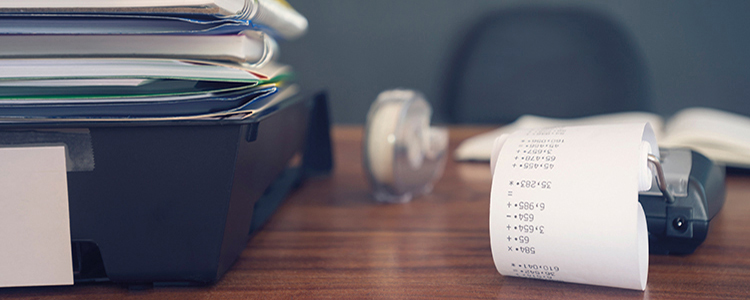

VAT is chargeable on the supply of goods and services in the UK when made by a business that is required to register for VAT.
A registered business must charge VAT on its sales which is known as output VAT. There are currently three rates of VAT which can be payable on what are known as taxable supplies. These are the standard rate of 20%, the reduced rate of 5% and the zero rate.
The zero rate applies where the supply is deemed to be subject to VAT but the output VAT is charged at 0%, meaning that no VAT is actually payable.
However, a business also pays VAT on the goods and services it buys. This is known as input tax.
If the output tax exceeds the input tax, then a payment of the difference has to be made to HMRC. If input tax exceeds output tax a repayment of VAT will be made. This calculation is generally done on a quarterly basis. However where repayments occur regularly it is possible to opt for monthly VAT returns. Regular repayments would perhaps apply where a business generally makes zero rated supplies.
Certain supplies of goods and services are not subject to VAT at all and are known as exempt supplies. A business that makes only exempt supplies cannot register for VAT and will be unable to reclaim any input tax.
|
Tax Tip |
|---|
|
When you first register for VAT you can reclaim input tax on goods purchased up to four years prior to registration provided they are still held when registration takes place. VAT on services supplied in the six months prior to registration may also be reclaimed. |
As there are three rates which can be applicable to taxable supplies, standard, reduced or zero rated, it is important to identify the type of supplies correctly and apply the correct percentage of VAT.
Some input VAT is not reclaimable by a VAT registered business. Two common examples are VAT incurred on entertaining UK business customers and VAT on the purchase of a car.
A business must register if its taxable supplies exceed an annual figure, currently £90,000. If taxable supplies are less than this a business may still register voluntarily. So, for example, if the business makes only zero rated sales, it can still register and reclaim the input tax suffered.
VAT can affect competition. A plumber, for example, who sells only to the general public, will be at a disadvantage if he has to register for VAT.
He may have to charge up to 20% more than a plumber who is not registered to earn the same profit.
On the other hand, if the same plumber only works for other VAT registered businesses, such as building companies, then it will not matter whether he is registered because the customer will be able to recover the VAT that is charged.
Indeed, in general, a business that always sells to other VAT registered businesses will normally register, even if below the annual limit, because then it can reclaim VAT on purchases and expenses.
This will improve profit and can be especially relevant for new businesses because there are often high initial set up costs that carry VAT. On the other hand, registration comes at the cost of having to meet onerous record keeping requirements, a need to submit online VAT returns and pay online and on time.
MTD for VAT is part of a government strategy which will ultimately require taxpayers to move to a fully digital tax system.
Under the MTD for VAT rules, businesses with a turnover above the VAT threshold must keep digital records for VAT purposes and provide their VAT return information to HMRC using MTD functional compatible software.
We can help to guide you through the requirements.